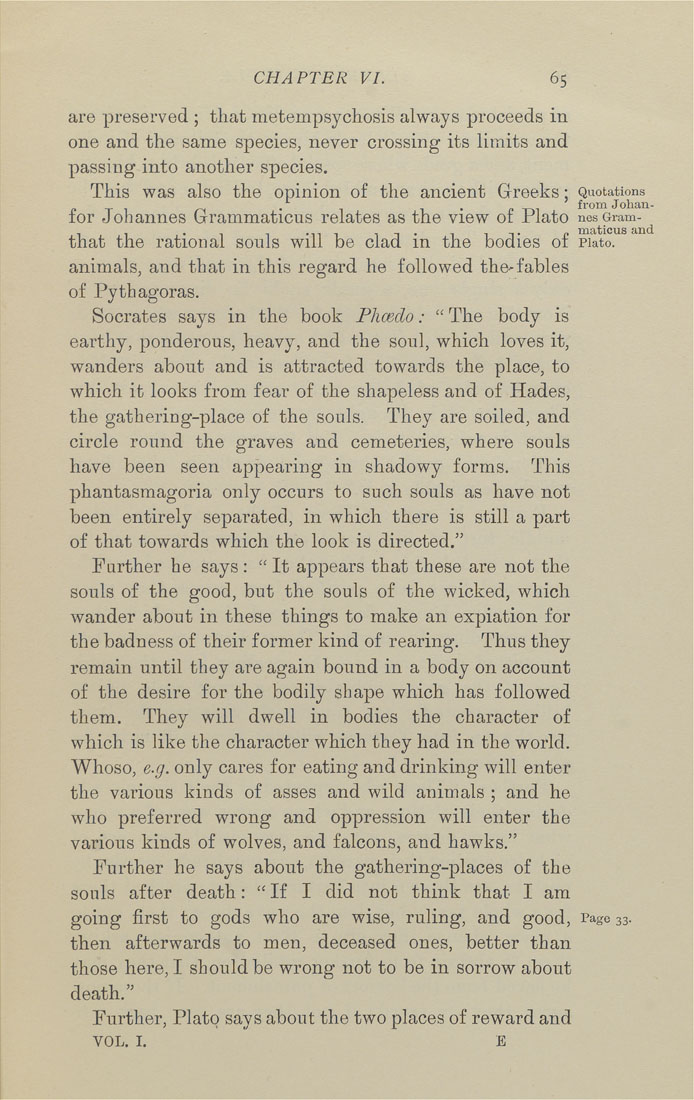Bīrūnī, Muḥammad ibn Aḥmad, Alberuni's India (v. 1)
(London : Kegan Paul, Trench, Trübner & Co., 1910.)
|
||
|
|
|
|
| Page 65 |

CHAPTER VI. are preserved ; that metempsychosis always proceeds in one and the same species, never crossing its limits and passing into another species. This was also the opinion of the ancient Greeks; Quotations p X 1 /-( • 1 • p -m ^'■°"^ Johan- for Johannes Grammaticus relates as the view ot Plato nesOram- . , . -111 !-!• TIT p maticus and that the rational souls will be clad in the bodies ot Piato. animals, and that in this regard he followed thc'fables of Pythagoras. Socrates says in the book Phcedo: " The body is earthy, ponderous, heavy, and the soul, which loves it, wanders about and is attracted towards the place, to which it looks from fear of the shapeless and of Hades, the gathering-place of the souls. They are soiled, and circle round the graves and cemeteries, where souls have been seen appearing in shadowy forms. This phantasmagoria only occurs to such souls as have not been entirely separated, in which there is still a part of that towards which the look is directed." Further he says: " It appears that these are not the souls of the good, but the souls of the wicked, which wander about in these things to make an expiation for the badness of their former kind of rearing. Thus they remain until they are again bound in a body on account of the desire for the bodily shape which has followed them. They will dwell in bodies the character of which is like the character which they had in the world. Whoso, e.g. only cares for eating and drinking will enter the various kinds of asses and wild animals ; and he who preferred wrong and oppression will enter the various kinds of wolves, and falcons, and hawks." Further he says about the gathering-places of the souls after death: " If I did not think that I am going first to gods who are wise, ruling, and good. Page 33. then afterwards to men, deceased ones, better than those here, I should be wrong not to be in sorrow about death." Further, Plato says about the two places of reward and VOL, L E |
| Page 65 |







